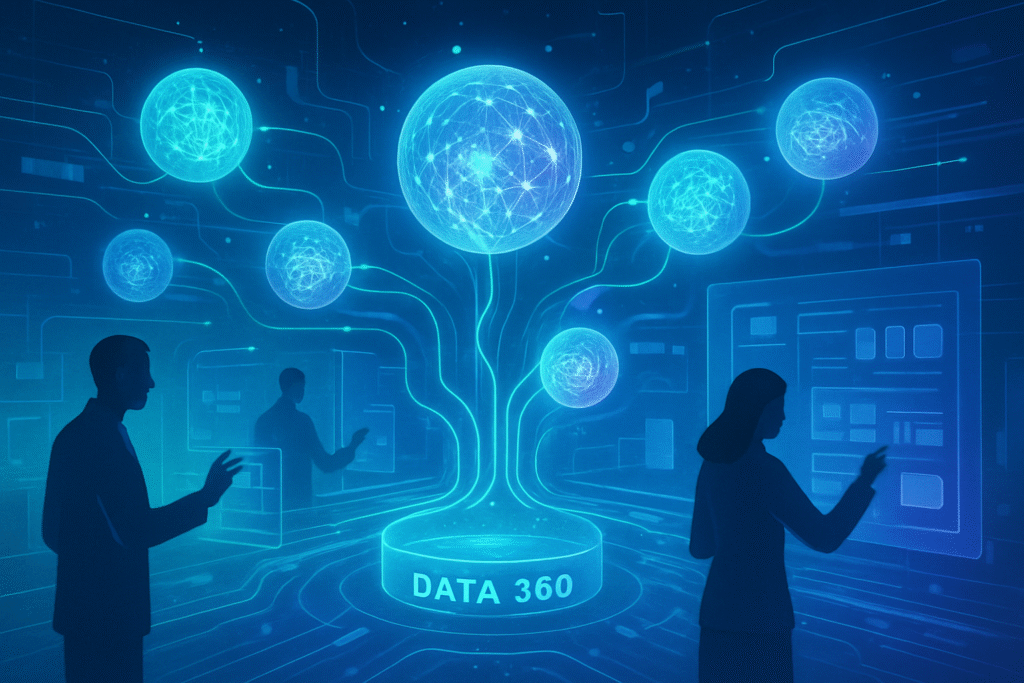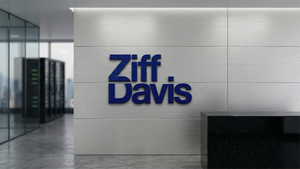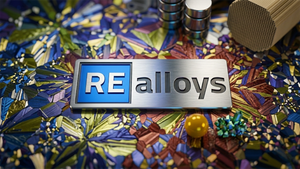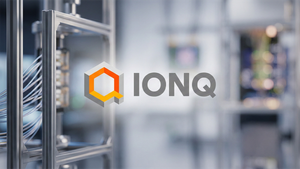
SAN FRANCISCO – In a landmark declaration at Dreamforce 2025, held from October 14-16, 2025, Salesforce (NYSE: CRM) unveiled a transformative vision for its future, deeply embedding advanced artificial intelligence across its entire platform and setting an audacious new financial goal: over $60 billion in revenue by fiscal year 2030. This strategic pivot, centered around the concept of an "Agentic Enterprise," signifies a profound shift in how businesses will leverage AI, moving beyond simple copilots to autonomous, intelligent agents that act as true digital teammates. The announcements have sent ripples across the tech industry, signaling a new frontier in enterprise AI and cementing Salesforce's intent to dominate the burgeoning market for AI-powered business solutions.
The core of Salesforce's announcement revolves around the evolution of its AI capabilities, transforming its widely recognized Einstein Copilot into "Agentforce," a comprehensive platform designed for building, deploying, and managing autonomous AI agents. This strategic evolution, coupled with the re-envisioning of Data Cloud as "Data 360" – the foundational intelligence layer for all AI operations – underscores Salesforce's commitment to delivering a unified, intelligent, and automated enterprise experience. The ambitious FY2030 revenue target, excluding the recently acquired Informatica, reinforces the company's confidence in its AI investments to drive sustained double-digit growth and profitability in the coming years.
The Dawn of the Agentic Enterprise: Technical Deep Dive into Agentforce 360 and Data 360
Salesforce's AI roadmap, meticulously detailed at Dreamforce 2025, paints a picture of an "Agentic Enterprise" where AI agents are not merely assistive tools but proactive collaborators, capable of executing multi-step workflows and integrating seamlessly with external systems. This vision is primarily realized through Agentforce 360, the successor to Einstein Copilot. Agentforce 360 represents a significant leap from one-step prompts to complex, multi-step reasoning and automation, allowing agents to act as digital collaborators across various business functions. Key technical advancements include a new conversational builder for intuitive agent creation, hybrid reasoning capabilities for enhanced control and accuracy, and integrated voice functionalities. Agentforce is powered by MuleSoft's new Agent Fabric, an orchestration layer designed to manage AI agents across diverse departments, ensuring coherence and efficiency. The company has also rebranded Service Cloud to "Agentforce Service" and introduced "Agentforce Sales," embedding native AI agents to optimize customer service operations and enhance sales team productivity.
Central to this agentic revolution is Data Cloud, now rebranded as Data 360, which Salesforce has positioned as the indispensable intelligence layer for all AI operations. Data 360 provides the unified, governed, and real-time data context necessary for AI agents to make informed decisions. Its tighter integration with the Einstein 1 platform enables organizations to train and deploy AI models directly on consolidated datasets, ensuring that agents are grounded in trusted information. Innovations showcased at Dreamforce include real-time segmentation, improved data sharing, expanded AI-driven insights, and the groundbreaking ability to automatically map new data sources using generative AI, promising to reduce integration setup time by up to 80%. An "Einstein Copilot for Data Cloud" was also introduced, functioning as a conversational AI assistant that allows users to query, understand, and manipulate data using natural language, democratizing data access.
This approach significantly differs from previous AI strategies that often focused on isolated AI tools or simpler "copilot" functionalities. Salesforce is now advocating for an integrated ecosystem where AI agents can autonomously perform tasks, learn from interactions, and collaborate with human counterparts, fundamentally altering business processes. Initial reactions from the AI research community and industry experts have been largely positive, with many recognizing the strategic foresight in pursuing an "agentic" model. Analysts highlight the potential for massive productivity gains and the creation of entirely new business models, although some express caution regarding the complexities of managing and governing such sophisticated AI systems at scale.
Competitive Implications and Market Disruption in the AI Landscape
Salesforce's aggressive AI-driven roadmap at Dreamforce 2025 carries significant competitive implications for major AI labs, tech giants, and startups alike. Companies like Microsoft (NASDAQ: MSFT) with their Copilot stack, Google (NASDAQ: GOOGL) with its Gemini integrations, and Adobe (NASDAQ: ADBE) with its Firefly-powered applications, are all vying for enterprise AI dominance. Salesforce's move to Agentforce positions it as a frontrunner in the autonomous agent space, potentially disrupting traditional enterprise software markets by offering a more comprehensive, end-to-end AI solution embedded directly into CRM workflows.
The "Agentic Enterprise" vision stands to benefit Salesforce directly by solidifying its market leadership in CRM and expanding its reach into new areas of business automation. The ambitious FY2030 revenue target of over $60 billion underscores the company's belief that these AI advancements will drive substantial new revenue streams and increase customer stickiness. The deep integration of AI into industry-specific solutions, such as "Agentforce Life Sciences" and "Agentforce Financial Services," creates a significant competitive advantage by addressing vertical-specific pain points with tailored AI agents. A notable partnership with Anthropic, making its Claude AI models a preferred option for regulated industries building agents on Agentforce, further strengthens Salesforce's ecosystem and offers a trusted solution for sectors with stringent data security requirements.
This strategic direction could pose a challenge to smaller AI startups focused on niche AI agent solutions, as Salesforce's integrated platform offers a more holistic approach. However, it also opens opportunities for partners to develop specialized agents and applications on the Agentforce platform, fostering a vibrant ecosystem. For tech giants, Salesforce's move escalates the AI arms race, forcing competitors to accelerate their own autonomous agent strategies and data integration efforts to keep pace. The "Agentic Enterprise License Agreement," offering unlimited consumption and licenses for Data Cloud, Agentforce, MuleSoft, Slack, and Tableau Next at a fixed cost, could also disrupt traditional licensing models, pushing competitors towards more value-based or consumption-based pricing for their AI offerings.
Broader Significance: Shaping the Future of Enterprise AI
Salesforce's Dreamforce 2025 announcements fit squarely into the broader AI landscape's accelerating trend towards more autonomous and context-aware AI systems. The shift from "copilot" to "agent" signifies a maturation of enterprise AI, moving beyond assistive functions to proactive execution. This development is a testament to the increasing sophistication of large language models (LLMs) and the growing ability to orchestrate complex AI workflows, marking a significant milestone in AI history, comparable to the advent of cloud computing in its potential to transform business operations.
The impacts are wide-ranging. For businesses, it promises unprecedented levels of automation, personalized customer experiences, and enhanced decision-making capabilities. The embedding of AI agents directly into platforms like Slack, now positioned as the "conversational front end for human & AI collaboration," means that AI becomes an invisible yet omnipresent partner in daily work, accessible where conversations and data naturally flow. This integration is designed to bridge the "agentic divide" between consumer-grade AI and enterprise-level capabilities, empowering businesses with the same agility seen in consumer applications.
However, the rapid deployment of autonomous agents also brings potential concerns. The concept of "agent sprawl"—an uncontrolled proliferation of AI agents—and the complexities of ensuring robust governance, ethical AI behavior, and data privacy will be critical challenges. Salesforce is addressing this with new "Agentforce Vibes" developer tools, enhanced builders, testing environments, and robust monitoring capabilities, along with an emphasis on context injection and observability to manage AI behavior and respect data boundaries. Comparisons to previous AI milestones, such as the initial breakthroughs in machine learning or the recent generative AI explosion, suggest that the "Agentic Enterprise" could represent the next major wave, fundamentally altering how work is done and how value is created in the digital economy.
Charting the Course: Future Developments and Expert Predictions
Looking ahead, Salesforce's AI roadmap suggests several expected near-term and long-term developments. In the near term, we can anticipate a rapid expansion of industry-specific Agentforce solutions, with more pre-built agents and templates for various sectors beyond the initial financial services partnership with Anthropic. The company will likely focus on refining the "Agentforce Vibes" developer experience, making it even easier for enterprises to build, customize, and deploy their own autonomous agents securely and efficiently. Further enhancements to Data 360, particularly in real-time data ingestion, governance, and AI model training capabilities, are also expected.
Potential applications and use cases on the horizon are vast. Imagine AI agents autonomously managing complex supply chains, dynamically adjusting pricing strategies based on real-time market conditions, or even proactively resolving customer issues before they escalate. In healthcare, agents could streamline patient intake, assist with diagnosis support, and personalize treatment plans. The integration with Slack suggests a future where AI agents seamlessly participate in team discussions, providing insights, automating tasks, and summarizing information on demand, transforming collaborative workflows.
Challenges that need to be addressed include the ongoing development of robust ethical AI frameworks, ensuring explainability and transparency in agent decision-making, and managing the cultural shift required for human-AI collaboration. The "agentic divide" between consumer and enterprise AI, while being addressed, will require continuous innovation to ensure enterprise-grade reliability and security. Experts predict that the next phase of AI will be defined by the ability of these autonomous agents to integrate, learn, and act across disparate systems, moving from isolated tasks to holistic business process automation. The success of Salesforce's vision will largely depend on its ability to deliver on the promise of seamless, trustworthy, and impactful AI agents at scale.
A New Era for Enterprise AI: Comprehensive Wrap-Up
Salesforce's Dreamforce 2025 announcements mark a pivotal moment in the evolution of enterprise artificial intelligence. The unveiling of Agentforce 360 and the strategic positioning of Data 360 as the foundational intelligence layer represent a bold step towards an "Agentic Enterprise"—a future where autonomous AI agents are not just tools but integral collaborators, driving multi-step workflows and transforming business operations. This comprehensive AI-driven roadmap, coupled with the ambitious FY2030 revenue target of over $60 billion, underscores Salesforce's unwavering commitment to leading the charge in the AI revolution.
This development's significance in AI history cannot be overstated. It signals a move beyond the "copilot" era, pushing the boundaries of what enterprise AI can achieve by enabling more proactive, intelligent, and integrated automation. Salesforce (NYSE: CRM) is not just enhancing its existing products; it's redefining the very architecture of enterprise software around AI. The company's focus on industry-specific AI, robust developer tooling, and critical partnerships with LLM providers like Anthropic further solidifies its strategic advantage and ability to deliver trusted AI solutions for diverse sectors.
In the coming weeks and months, the tech world will be watching closely to see how quickly enterprises adopt these new agentic capabilities and how competitors respond to Salesforce's aggressive push. Key areas to watch include the rollout of new Agentforce solutions, the continued evolution of Data 360's real-time capabilities, and the development of the broader ecosystem of partners and developers building on the Agentforce platform. The "Agentic Enterprise" is no longer a distant concept but a tangible reality, poised to reshape how businesses operate and innovate in the AI-first economy.
This content is intended for informational purposes only and represents analysis of current AI developments.
TokenRing AI delivers enterprise-grade solutions for multi-agent AI workflow orchestration, AI-powered development tools, and seamless remote collaboration platforms.
For more information, visit https://www.tokenring.ai/.





